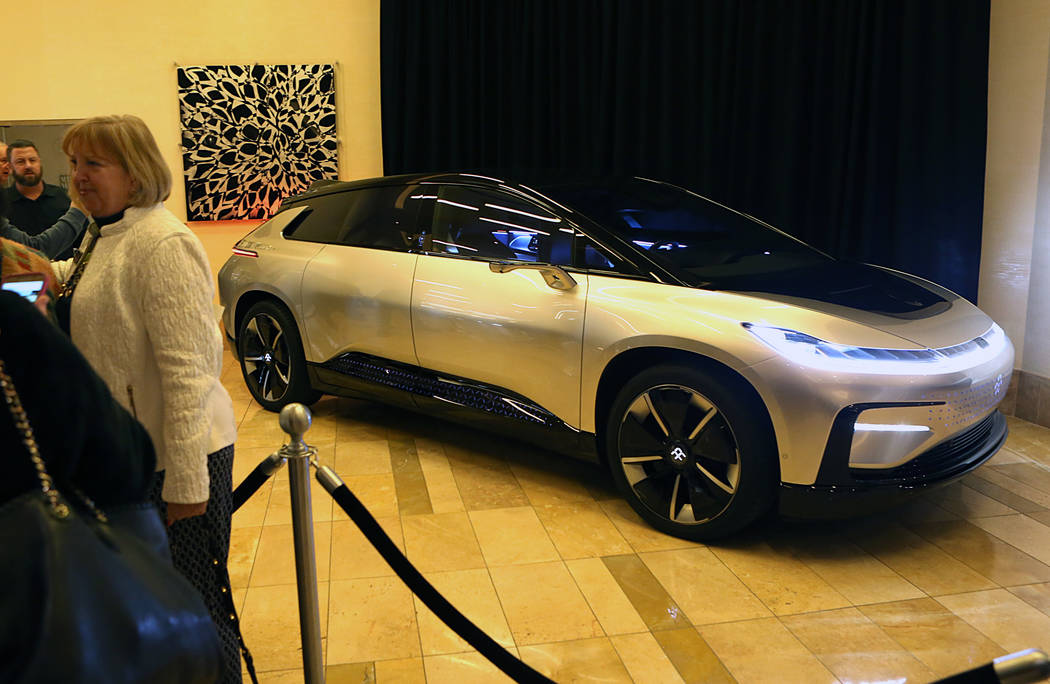EDITORIAL: Faraday Future’s grandiose promises prove to be fantasy
The failure of Faraday Future offers a case study in how economic reality trumps optimism and hype — and how well-intentioned policymakers too often let the euphoria of grandiose promises and rhetoric overwhelm their reason and judgment.
The electric car company — once touted as a serious competitor to Tesla — announced Monday that it was abandoning plans to build a production facility in North Las Vegas. Instead, the company says it will now look for an existing facility that will help it control costs while still pursuing a goal of churning out vehicles sometime next year.
And if you believe that, we’ve got a perpetual motion machine that we’d be happy to sell you. Faraday is kaput.
Back in November, Nevada Treasurer Dan Schwartz called Faraday a “Ponzi scheme,” and it turns out he was right. The company rode into town on a magic carpet of self-promotion, media adulation and inflated technological claims. The company promised 13,000 jobs and a new $1 billion manufacturing facility that would attract a coterie of high-tech outfits and suppliers to the Apex industrial site in North Las Vegas, filling tax state and local coffers while promoting a fashionable green agenda.
Nevada’s economic development gurus swooned — and so did the governor and lawmakers. In late 2015, the Legislature overwhelmingly approved a $330 million incentive package for the company. The Faraday project “is going to change the trajectory and economy in Southern Nevada and the state,” Gov. Brian Sandoval gushed.
Boosters of the project reacted to Mr. Schwartz’s skepticism with scorn and derision, but the warning signs soon became too obvious to ignore. The national automotive press expressed doubts about many of Faraday’s engineering claims and mocked a futuristic prototype unveiled in 2016. When the company’s reclusive Chinese billionaire backer turned out to have major financial issues — and Faraday late last year began missing payments to contractors — Mr. Schwartz’s was proven prophetic.
Steve Hill, the governor’s economic development czar, expressed disappointment Monday at Faraday’s decision and insisted state taxpayers faced no risks because the tax breaks were dependent on the company hitting certain benchmarks. Mr. Hill and his team at least deserve credit for structuring the deal in such a fashion — although who knows the result had the company managed to keep the financial shell game going for another year or two.
Make no mistake, this is an embarrassment to the state’s political establishment, which failed to do its due diligence. And the Faraday fiasco proves yet again that when it comes to picking winners and losers, politicians and bureaucrats waving around suitcases of taxpayer money are a poor substitute for the marketplace.

















